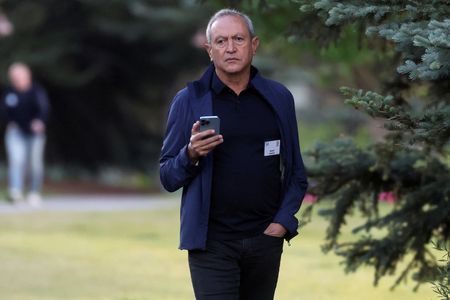By Isaac Anyaogu
LAGOS (Reuters) -Nigeria’s Securities and Exchange Commission has issued a directive to fund managers to value bonds based on current market prices rather than their original purchase cost, the agency confirmed on Monday.
The move, known as mark-to-market or MTM valuation, is aimed at improving transparency and aligning asset values with real-time market conditions and will make Nigerian fixed income assets more easily comparable with global benchmarks.
It also supports better pricing and liquidity, key factors for portfolio managers assessing emerging market exposure.
Analysts say the shift to mark-to-market could expose fund holders to price volatility that was previously masked by the hold-to-maturity approach.
“Fund prices could now fluctuate with the market, which means potential losses that weren’t visible before,” said Niyi Falade, an executive director at investment firm Custodian Investment Plc. “Bond prices haven’t reflected market movements, but with this change, there will be ups and downs as interest rates shift. That introduces volatility.”
MTM accounting reflects the fair value of bonds based on current market conditions, including interest rate changes and credit risk.
Under the new rules, fund managers have until September 2027 to fully transition to MTM accounting for fixed income securities.
During this period, the SEC is allowing a temporary relaxation of asset-allocation rules, permitting a 50:50 split between MTM and amortized cost methods — down from the standard 70:30 ratio. However, all new bond purchases must be valued immediately using the MTM approach.
The SEC has also mandated that every fund manager submit an implementation plan by October 2 outlining how they intend to comply with the new framework before the grace period ends.
The change comes amid wider economic reforms under President Bola Tinubu which have included exchange rate liberalisation and subsidy removal — moves that have drawn renewed interest from investors.
(Reporting by Isaac Anyaogu; Editing by Hugh Lawson)









